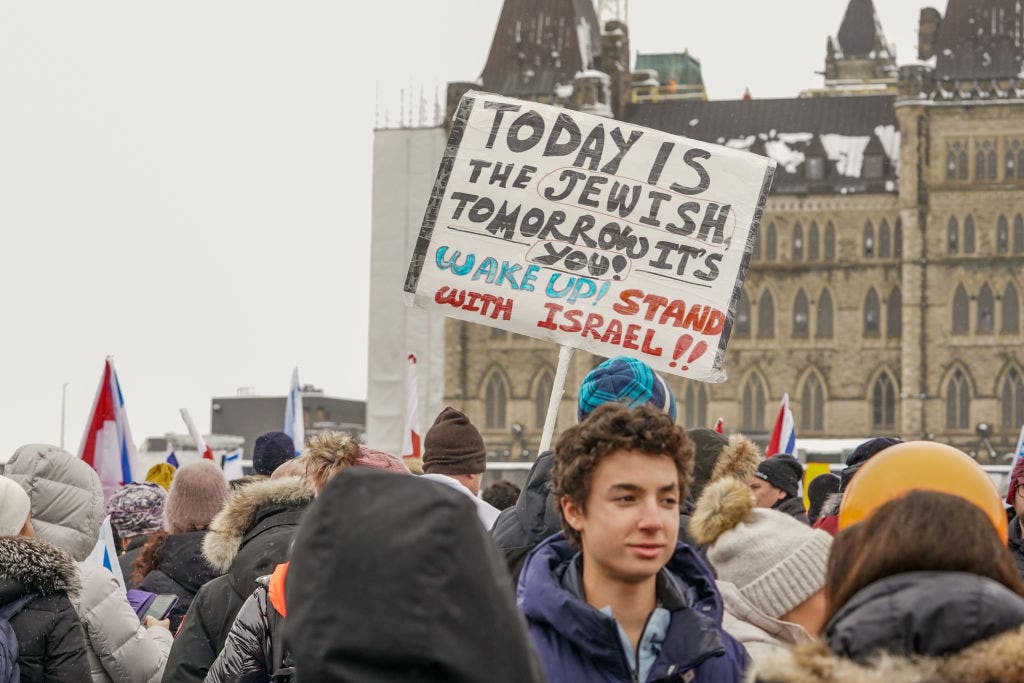Antisemitism in Canada has grown to alarming levels, with a significant increase in hate crimes targeting Jews. Statistics from Toronto show that 56% of registered hate crimes were motivated by antisemitism. The spike in incidents includes firebombings of synagogues and Jewish-owned businesses, shootings at Jewish schools, and assaults on members of the Jewish community across Canada. The situation has been described as the worst since the Holocaust, with Jews in Canada feeling vulnerable and unsafe.
Richard Marceau, Vice President of the Centre for Israel and Jewish Affairs in Canada, highlighted the ongoing antisemitic attacks and called for a united effort to combat this toxic hate. He emphasized the need for governments to implement measures such as safe access zones, online hate legislation, and protection for Jewish community members. Marceau also stressed the importance of addressing antisemitism in schools and businesses. The rise in antisemitism has been attributed to anti-Zionism and political opportunism, with some groups exploiting the situation for their own benefit.
The Canadian government has taken steps to address antisemitism, including holding a national summit on the issue and investing in combating racism and hate. Measures such as appointing a Special Envoy on Preserving Holocaust Remembrance and Combatting Antisemitism have been put in place to tackle religious discrimination and hateful rhetoric. Efforts are also being made to empower communities and strengthen resilience against hate. However, questions have been raised about Canada’s decision to halt arms sales to Israel during its conflict with Hamas, leading to criticism from Israeli officials and concerns about the country’s stance on modern antisemitism.
An expert on terrorism and international security in Canada, Casey Babb, has highlighted the role of anti-Zionism in fueling antisemitism in the country. He pointed out that the response to antisemitic incidents has been inadequate, with political considerations hindering effective action against Jew-hatred. Babb criticized the normalization of Hamas and other terrorist groups in Canadian society, suggesting that decision-makers have sent the wrong message by aligning with those who oppose Israel’s right to self-defense. The involvement of pro-Palestinian groups and individuals associated with terrorist organizations has raised concerns about the moral decay in Canadian society.
The actions of the Canadian government, including its support for UNRWA and decision to halt arms sales to Israel, have been viewed as appeasing groups and individuals sympathetic to terrorist organizations. Critics argue that such policies embolden the supporters of antisemitism and undermine efforts to combat extremism. Emily Schrader, a human rights activist, expressed alarm at the rise in blatant antisemitism in Canada, attributing it to weak government policies and foreign interference. She emphasized the importance of deterrence in combating extremism and criticized Trudeau’s actions as rewarding radicals and allowing the spread of antisemitism in the country.
Overall, the surge in antisemitic incidents in Canada has raised concerns about the safety and well-being of the Jewish community. Efforts to address this issue have been met with criticism and calls for stronger action against hate crimes. The connection between anti-Zionism and antisemitism, as well as the political considerations shaping Canada’s response to the issue, have underscored the complex nature of combating Jew-hatred in the country. Despite government initiatives to tackle antisemitism, there remains a need for a comprehensive and united approach to address the root causes of this age-old hatred.


